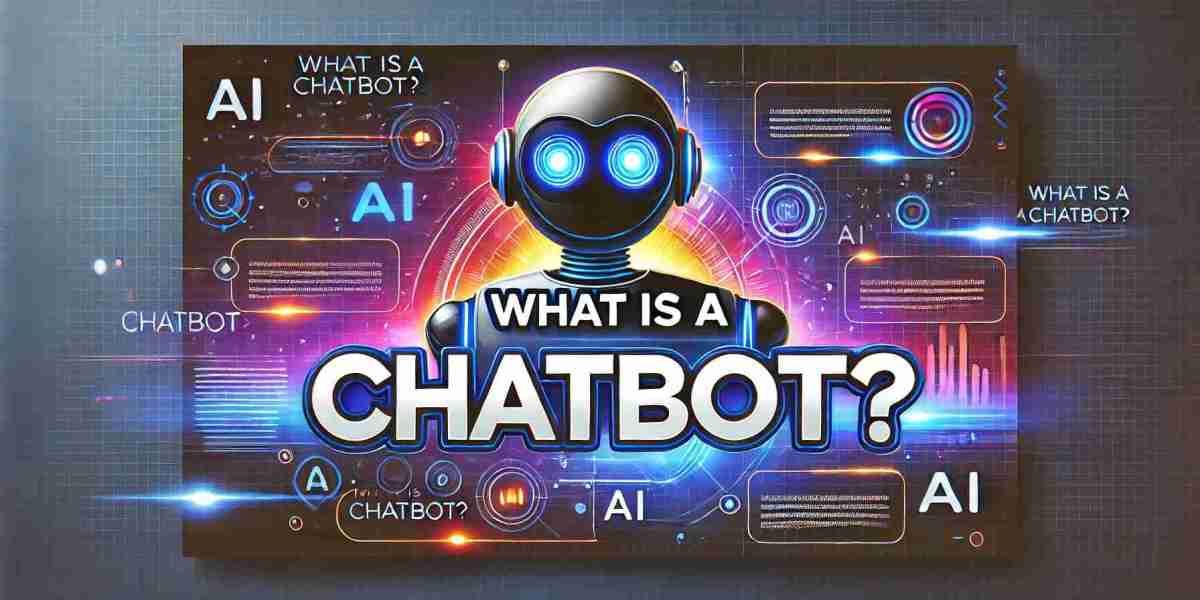Artificial intelligence (AI) has transformed how we interact with technology. One of its most significant applications is AI chatbots, which have become essential across multiple industries. From customer service to personal companionship, these bots handle tasks that once required human effort.
While early chatbots relied on basic scripts, modern AI-driven bots use machine learning and natural language processing to create more realistic and efficient conversations. Their growing presence raises questions about their types, features, and how they benefit individuals and businesses.
✅ How AI Chatbots Work
AI chatbots process and generate responses using complex algorithms. They analyze user input, predict intent, and respond based on pre-trained data or live learning models. Their responses vary based on the level of intelligence programmed into them.
Some chatbots follow simple rule-based systems, where responses are pre-set, while others use deep learning to refine their replies over time. The ability to adapt makes them useful for various applications, from answering customer queries to providing emotional support.
✅ Different Types of AI Chatbots
Not all AI chatbots function the same way. Their design depends on their purpose and level of sophistication.
1. Rule-Based Chatbots
These are the most basic AI chatbots, operating on predefined scripts. They follow decision trees to provide answers but cannot understand context beyond their programming. Businesses use them for simple queries such as FAQs and appointment scheduling.
2. Self-Learning Chatbots
Unlike rule-based bots, self-learning chatbots evolve based on interactions. They use AI models like machine learning and deep learning to analyze conversations and improve responses. These bots are used in customer support, personal assistants, and interactive services.
3. AI-Powered Virtual Assistants
These chatbots go beyond text-based interactions. Virtual assistants like Siri, Google Assistant, and Alexa integrate voice recognition to respond naturally. They handle tasks such as setting reminders, controlling smart devices, and retrieving information.
4. Conversational AI for Emotional Intelligence
Some AI chatbots are designed to understand and respond to emotions. They analyze tone, word choice, and sentence structure to provide a more human-like conversation. Businesses focusing on mental health and companionship often utilize these chatbots.
5. Industry-Specific Chatbots
AI chatbots serve specialized fields such as finance, healthcare, and education. For example, healthcare chatbots assist with symptom checking, while banking bots help users manage transactions and accounts.
✅ Essential Features of AI Chatbots
The effectiveness of an AI chatbot depends on the features it offers. Some bots excel in specific areas, while others integrate multiple capabilities.
1. Natural Language Processing (NLP)
NLP enables chatbots to interpret user queries and respond accurately. This feature allows them to understand slang, misspellings, and variations in sentence structure.
2. Context Awareness
Unlike traditional bots, AI-powered chatbots retain conversation history. They remember previous interactions and use them to maintain continuity in responses.
3. Multi-Channel Integration
AI chatbots can function across various platforms, including websites, mobile apps, messaging services, and social media. Businesses benefit from their ability to provide a seamless experience across multiple communication channels.
4. Voice Recognition and Synthesis
Voice-enabled chatbots allow users to interact through speech rather than text. This feature is particularly useful for smart assistants and accessibility-focused applications.
5. Personalization
Advanced AI chatbots tailor responses based on user preferences and past interactions. They can recommend products, provide personalized news, or suggest relevant services.
✅ Real-World Benefits of AI Chatbots
AI chatbots are not only efficient but also bring multiple advantages to businesses and individuals.
For Businesses
- Customer Support Efficiency: AI chatbots handle inquiries 24/7 without human intervention. They provide instant responses, reducing wait times.
- Cost Reduction: Companies save money by reducing the need for large customer support teams. AI chatbots can manage multiple conversations simultaneously.
- Sales and Lead Generation: Bots engage website visitors, recommend products, and even assist with the checkout process.
- Data Collection and Insights: AI chatbots gather valuable user data, helping businesses improve services and customer experience.
For Individuals
- Instant Information Access: AI chatbots provide answers within seconds, eliminating the need to browse through multiple web pages.
- Companionship and Emotional Support: Some AI chatbots are designed for personal interaction, helping users combat loneliness.
- Time Management Assistance: Virtual assistants help with reminders, calendar events, and scheduling.
In comparison to human-driven services, AI chatbots operate with consistent efficiency, making them reliable for everyday use.
✅ AI Chatbots in Entertainment and Personal Interaction
Beyond business and productivity, AI chatbots have entered the entertainment and social interaction space. Some bots offer engaging conversations, while others provide AI-generated companionship.
One growing trend is AI chatbot 18+, designed for users seeking more personalized and interactive discussions. These chatbots create immersive digital relationships, catering to specific conversational needs.
Similarly, AI chatbots are being integrated into gaming, role-playing, and digital storytelling. Their ability to generate responses based on player input enhances the interactive experience.
✅ Ethical Considerations and Privacy Concerns
Even though AI chatbots provide convenience, they raise concerns about privacy, security, and ethical boundaries.
1. Data Privacy
AI chatbots collect vast amounts of user data. If not secured properly, this information can be misused or exposed to cyber threats. Businesses must ensure strong encryption and compliance with data protection laws.
2. Bias and Misinformation
Since AI models learn from existing data, they may develop biases or spread incorrect information. Developers must refine algorithms to minimize these risks.
3. Dependency on AI Chatbots
While AI chatbots offer benefits, relying too much on them can reduce human interaction and critical thinking. Balancing AI automation with human engagement remains essential.
One example of this trend is NSFW AI chatbot, which raises discussions about ethical AI boundaries. These chatbots cater to mature audiences, prompting debates about content moderation and responsible AI use.
✅ AI Chatbots in Digital Communication
AI chatbots have transformed how people communicate online. From customer inquiries to social conversations, they have redefined digital interactions.
A particularly notable shift is the rise of AI sexting, where AI-powered bots simulate romantic or intimate conversations. While some users appreciate the experience, concerns about authenticity and emotional attachment continue to emerge.
In spite of these discussions, AI chatbots remain a powerful tool in digital communication, offering new ways to connect and interact.
✅ The Future of AI Chatbots
Mango AI and other AI chatbots will keep advancing with improvements in deep learning, emotional intelligence, and real-time decision-making. Businesses and individuals can expect even more sophisticated bots that can manage complex conversations with greater accuracy and responsiveness.
Some key developments to watch include:
- Improved Emotional Recognition: AI chatbots will become better at detecting human emotions and responding appropriately.
- Integration with Augmented Reality (AR): Future bots may interact within virtual environments, enhancing digital engagement.
- Greater Personalization: AI will refine user experiences, offering more tailored responses.
As AI technology progresses, chatbots will become even more ingrained in daily life, changing how we interact with machines and each other.
Read Also:- How to Make AI Porn Business
Conclusion
AI chatbots have become an integral part of modern communication, assisting businesses and individuals in numerous ways. Their ability to process language, provide personalized interactions, and operate across different platforms makes them invaluable tools.
While ethical concerns and privacy risks remain, advancements in AI development continue to refine chatbot performance. Their role in customer service, companionship, and digital engagement will only expand, making them a permanent fixture in the AI-driven world.






